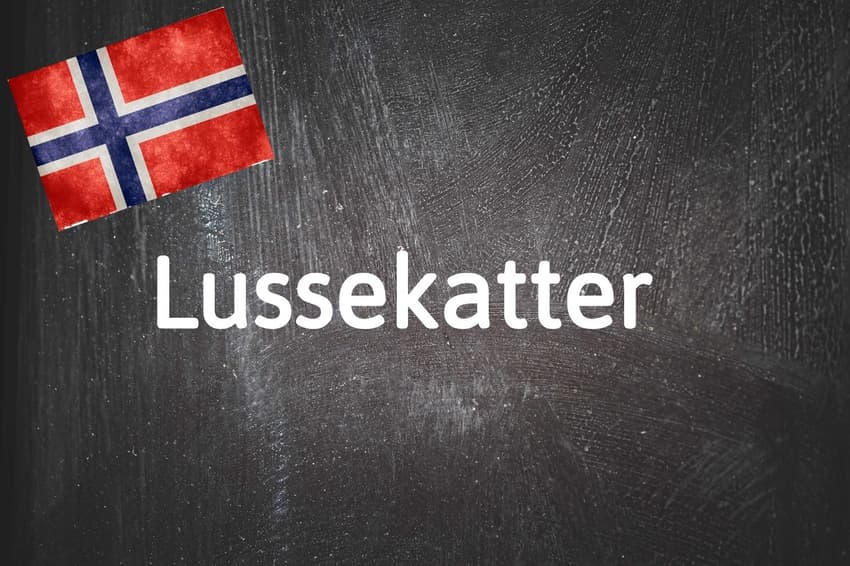Norwegian word of the day: Lussekatter

Have you tried a lusseskatt to mark Santa Lucia today?
Today's Norwegian word of the day focuses on lussekatt, the bright yellow S-shaped saffron buns offered in Norway during Christmas.
The first half of the word comes from Lussi, or Lucia. The second half comes from the Norwegian word for cat.
Lucia was a Christian girl born in Sicily in 283. She dedicated her life to helping others, and she wore a candle on her head to keep her hands free while she handed out food.
Lucia was betrothed to a man by her mother, but the marriage was cancelled because Lucia wished to remain unmarried. This incurred the wrath of her fiancé, who informed the Roman Empire of her refusal.
Several attempts to punish and kill Lucia failed miraculously.
Before Christianity made its way to Norway and the day to mark Santa Lucia was adopted, it was called Lussinatten. Working was forbidden during this time, and it was believed that spirits, gnomes, trolls and talking livestock roamed the Earth.
The tradition, therefore, represents a blending of Christian and old Norse traditions.
The buns eaten on Satna Lucia, luseekatter, originate from Sweden. They were originally called djävulskatter or "Devil's cats". Later, they would be renamed after Lucia.
This trend can be traced to the 19th century when a German tradition of baking buns shaped like sleeping cats started to become popular.
The buns are supposed to contain saffron, although many use cardamom as a substitute due to the cost of saffron.
Livestock, cats and dogs were also given treats to protect themselves from the evil forces on Lussinatten.
Comments
See Also
Today's Norwegian word of the day focuses on lussekatt, the bright yellow S-shaped saffron buns offered in Norway during Christmas.
The first half of the word comes from Lussi, or Lucia. The second half comes from the Norwegian word for cat.
Lucia was a Christian girl born in Sicily in 283. She dedicated her life to helping others, and she wore a candle on her head to keep her hands free while she handed out food.
Lucia was betrothed to a man by her mother, but the marriage was cancelled because Lucia wished to remain unmarried. This incurred the wrath of her fiancé, who informed the Roman Empire of her refusal.
Several attempts to punish and kill Lucia failed miraculously.
Before Christianity made its way to Norway and the day to mark Santa Lucia was adopted, it was called Lussinatten. Working was forbidden during this time, and it was believed that spirits, gnomes, trolls and talking livestock roamed the Earth.
The tradition, therefore, represents a blending of Christian and old Norse traditions.
The buns eaten on Satna Lucia, luseekatter, originate from Sweden. They were originally called djävulskatter or "Devil's cats". Later, they would be renamed after Lucia.
This trend can be traced to the 19th century when a German tradition of baking buns shaped like sleeping cats started to become popular.
The buns are supposed to contain saffron, although many use cardamom as a substitute due to the cost of saffron.
Livestock, cats and dogs were also given treats to protect themselves from the evil forces on Lussinatten.
Join the conversation in our comments section below. Share your own views and experience and if you have a question or suggestion for our journalists then email us at [email protected].
Please keep comments civil, constructive and on topic – and make sure to read our terms of use before getting involved.
Please log in here to leave a comment.